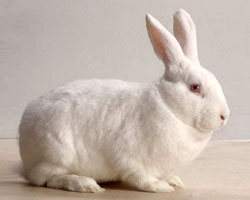EU Opts for Cruelty-Free Cosmetics

Effective this March 11, all cosmetics and personal care products sold throughout the European Union must not be tested on animals anywhere in the world. The ban includes all toiletries, including soap and toothpaste and all cosmetics and beauty products. Prior to the recent announcement, the European Partnership for Alternative Approaches to Animal Testing, a voluntary collaboration between the European Commission and companies such as L’Oreal, Colgate-Palmolive, Unilever and Johnson & Johnson, stated in their 2012 annual conference press release that finding future alternatives to animal testing and ensuring their use would “require stronger and greater international cooperation.”
Major beauty companies successfully lobbied against a European ban on animal-tested cosmetics and personal-care products in 2003, so concerns were raised as to whether the ban would also be postponed this year. European Commissioner for Health and Consumer Policy Tonio Borg assuaged those fears, however, when he confirmed in a letter to animal rights’ campaigners that it would be moving forward. “I believe that the ban should enter into force in March 2013 as Parliament and Council have already decided,” Borg wrote. “I am therefore not planning to propose a postponement or derogation to the ban.”
At the forefront of the groundbreaking victory is BUAV, a pioneer nonprofit organization that has been “campaigning peacefully to create a world where nobody wants or believes we need to experiment on animals” for over 100 years. Over the last two decades, BUAV and others against animal testing, including the European Coalition to End Animal Experiments, the People for the Ethical Treatment of Animals (PETA), and retailers The Body Shop and Paul Mitchell, have put forth rigorous campaigns across Europe to end animal testing for cosmetics and beauty products. In 2012, BUAV established Cruelty Free International, the first global organization dedicated to ending cosmetics animal testing worldwide. Joining forces with the The Body Shop and Paul Mitchell, Cruelty Free International launched an international campaign that has so far resulted in customers from 55 countries signing a global pledge to end animal testing in cosmetics forever.
“This is truly a historic event and the culmination of over 20 years of campaigning,” said Michelle Thew, Chief Executive of Cruelty Free International. “Now we will apply our determination and vision on a global stage to ensure that the rest of the world follows this lead.”
According to Cruelty Free International, many of the animal tests used to test cosmetics ingredients can now be replaced with modern methods more effective at predicting human reactions. For example, to assess skin irritation, alternatives such as “Reconstituted Human Epidermis” can be used. These tests use reconstituted human skin donated from cosmetic surgery and have been shown to be more effective than the cruel rabbit Draize skin test. Though animal testing continues to be practiced in the United States (and China actually requires animal testing be conducted on all cosmetics before they can be brought to market), the upcoming prohibition of animal-tested beauty products throughout the 27 member nations of the European Union may require companies to wipe cruelty out of their products worldwide.
“This great achievement in Europe is only the closure of one chapter,” said Paul McGreevy, International Values Director of The Body Shop. “The future of beauty must be cruelty free.”
In the meantime, companies like Paul Mitchell have pledged that its products will not be sold in China until the country changes its laws on animal testing, and will make its ethical ethos known in fashion magazine ads and on special packaging promoting Cruelty Free International.
“Since Paul Mitchell was founded in 1980, we have been cruelty-free,” Chief Executive and Co-Founder of Paul Mitchell John Paul DeJoria said. “We do not conduct or condone animal testing on our products, and we are working with the Chinese government until alternatives to animal testing methods have been accepted. I am delighted to support Cruelty Free International. Together we make a difference.”
Consumers can also look for the “Leaping Bunny” logo on products to ensure they are cruelty-free or browse PETA’s comprehensive online database of companies that do and do not test on animals.

